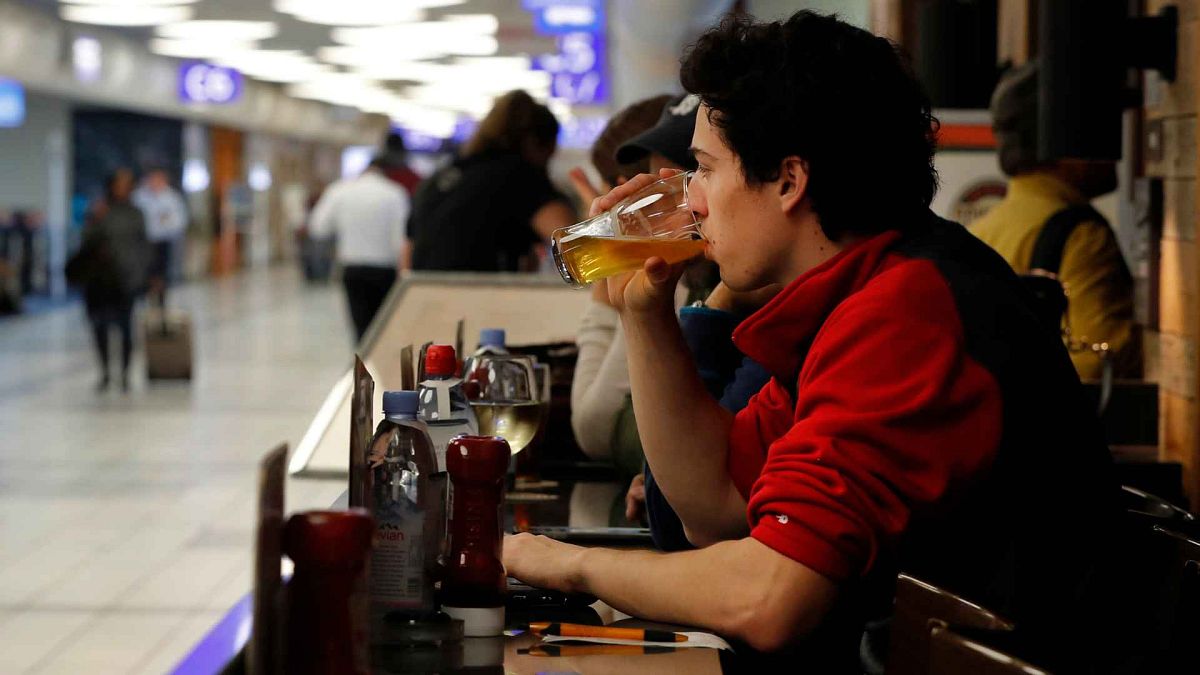Travel
Ryanair demands EU airports limit passengers to two alcoholic drinks

Ryanair Calls for Stricter Alcohol Limits at Airports to Curb Disruptive Passenger Behavior
Ryanair, the popular low-cost airline, has intensified its push for stricter regulations on alcohol consumption at airports, citing an urgent need to address the growing issue of disruptive passenger behavior onboard flights. The airline’s call for action comes after a recent incident in which a passenger’s alleged intoxication and unruly conduct forced a flight to divert, resulting in significant financial consequences. Ryanair is now suing the passenger for €15,000 to cover the costs of the diversion, which included accommodation for over 160 passengers and crew members, additional aircraft and crew costs, and legal fees. The airline argues that limiting alcohol sales at airports, similar to how duty-free purchases are regulated, could prevent such incidents and ensure a safer travel experience for all passengers and crew.
The Financial Toll of Disruptive Behavior
The financial impact of disruptive passenger behavior is substantial, as highlighted by Ryanair’s recent experience. When a flight from Dublin to Lanzarote was forced to divert to Porto, Portugal, due to a passenger’s “inexcusable behavior,” the airline incurred significant costs. The diversion required providing overnight accommodation and meals for 160 passengers and six crew members, costing €7,000. Additional expenses included €2,500 in airport landing and handling fees, €1,800 for replacement crew, €2,500 in Portuguese legal fees, €800 for excess fuel, and €750 in lost in-flight sales. These costs underscore the financial burden disruptive behavior places on airlines and, by extension, passengers. Ryanair believes that addressing the root cause of such incidents—often linked to excessive alcohol consumption before boarding—could help mitigate these costs.
The Rising Trend of Disruptive Incidents on Flights
While still relatively rare, incidents of unruly passenger behavior on flights have been on the rise in recent years. The European Union Aviation Safety Agency (EASA) has noted an increase in both the number and severity of such incidents since 2020. Globally, the International Air Transport Association (IATA) reported one disruptive incident for every 480 flights in 2023, up from one in 568 in 2022. These incidents often involve alcohol consumption, verbal abuse, harassment, or even violence, posing a significant threat to the safety and comfort of passengers and crew. In the United States, the Federal Aviation Administration (FAA) reported 2,102 unruly passenger incidents in 2023, resulting in $7.5 million in fines. While this figure represents a slight increase from 2022, it remains far below the peak of 5,973 incidents in 2021.
Ryanair’s Call for EU Action
Ryanair is urging EU authorities to take a proactive approach to addressing the issue by limiting alcohol sales at airports. The airline has proposed a system where passengers are restricted to purchasing two alcoholic drinks at airports, similar to how duty-free sales are regulated. Passengers would use their boarding passes to track their purchases, ensuring compliance with the limit. Ryanair believes this measure would lead to safer and more respectful behavior onboard flights, creating a better travel experience for everyone. The airline also pointed out that while in-flight alcohol sales are already regulated, passengers often consume excessive alcohol at airports, particularly during flight delays, which can lead to disruptive behavior once onboard.
Addressing the Root Cause of Disruptive Behavior
While alcohol consumption is often cited as a contributing factor to disruptive behavior, it is not the only solution. Airlines, airports, and aviation authorities must work together to implement comprehensive measures to prevent such incidents. For example, initiatives like the UK’s “One Too Many” campaign aim to raise awareness about the risks of excessive alcohol consumption before flying. Additionally, airlines can improve staff training to better identify and manage intoxicated passengers and adopt stricter boarding policies to prevent passengers who are already under the influence from boarding flights. By addressing the root causes of disruptive behavior, the aviation industry can create a safer and more enjoyable travel environment for all.
Conclusion: A Safer Future for Air Travel
Ryanair’s call for stricter alcohol limits at airports is part of a broader effort to tackle the growing problem of disruptive passenger behavior. While the financial and safety implications of such incidents are significant, the solutions lie in a combination of regulation, awareness, and proactive measures by airlines and airports. By limiting alcohol sales at airports, improving staff training, and raising passenger awareness, the aviation industry can reduce the frequency and severity of disruptive incidents. As air travel continues to recover and grow, ensuring the safety and comfort of all passengers and crew remains a top priority. Addressing this issue now will help create a safer and more enjoyable future for air travel.











